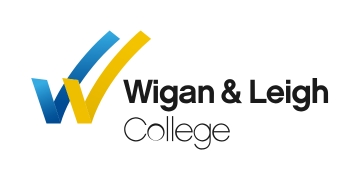Professor Daniel Khan OBE, chief executive of OCN London, considers this year’s change in grade boundaries.
Since thousands of 16-year-olds collected their GCSE results, the unprecedented decline in A* to C grades has hardly been out of the press. For the first time in the history of the qualification, the percentage of students gaining these grades has fallen. At the fore of the fiasco is the altering of the grade boundaries for English between January and June.
The consequence of such interference was that a student who received a C grade in January could have received a D in June, with the exact same mark. Altering the boundaries in the same academic year has been labelled “scandalous” by some teachers and head teachers and will undoubtedly have serious implications for the futures of thousands of young people.
Ofqual immediately responded that the June grades were “fair” and the issue lies in the January examinations. The grades awarded in January were “generous” and, as a result, in June the boundaries were raised and fewer students achieved the crucial C grade.
Yet, contradictory to this, recently leaked letters reveal that Ofqual ordered the awarding organisation, Edexcel, to alter the June grades just two weeks before the results were published. They did so amid fears that too many students were going to get C grades.
Education Secretary Michael Gove has offered his sympathy to students who have not received the grades that they expected — he has even admitted that students were treated unfairly — but has ruled out ministerial intervention.
Nevertheless, the remarkable decision to move grade boundaries between January and June has sparked suspicions of pressure directly from Gove. Since assuming office he has taken a firm stand against grade inflation and has often spoken of the “dumbing down” of exams. It seems more than a coincidence that the first decline in the number of A* to C grades happened this year — who’s fooling who?
What has happened raises questions over the very purpose of education”
Regardless of whether Gove did directly put pressure on Ofqual, the fuss this August raises questions over the purpose of education. It highlights the direction which this Government appears to be heading and its keenness to use grades as a sole measure of success.
Gove’s vision for the future of GCSEs recommends the introduction of one exam per subject, provided by a single board, without assessment by coursework. His desire to implement a traditional examination system, which harks back to O-levels, will produce a certain culture within secondary education. Such a focus on exams, and allusions to the former system, has led to many accusing Gove of being stuck in the past and reluctant to adopt more innovative ideas.
Exams test a student’s ability to study in a very specific way. Under the Gove doctrine the general aim of education would be to prepare students to absorb as much information as possible and then recount it all in just a few hours at the end of the academic year. Other measures of ability, such as independent pieces of coursework, would be discounted. Arguably this would assess just one form of intelligence and risk reverting back to the two-tier system where students who performed less well in exams were left behind.
The direction of the Government, and the furore over the GCSE grades, begs the questions — should secondary education require students to acquire knowledge solely to perform well in exams, knowledge that they may use little of in the future, or should it prepare them for the workplace and equip them with skills for life?
Further, is intelligence a single entity or is it multi-faceted and expressed in a variety of ways? If the latter is true then surely using exams as the key driver behind learning is somewhat one-dimensional. Using exams as the primary way to test the performance of students fails to consider that there is more to education than out-performing classmates in the number of A* to Cs achieved.
The fools in this fiasco will be awarding organisations if they allow politicians or regulators to dictate their mission, values and ethos. They need to ensure that learners are fairly assessed and given the opportunity to enhance the quality of their lives and enrich their community through the acquisition of knowledge and skills.








I totally agree, I have three children, two are dyslexic, one took A levels this year and did extremly well ( even though the grades were also ‘jigged’) the other took GCSE’s . She has been averaging B’s for the last 2 years. The new system would discriminate against children like my own, the passes my daughter acheived were in subjects where she had course work, it showed her levels of ability in all areas of learning not just in writing for a one hour exam. I took O levels, many of my friends cracked under the strain of exams, many did not ever achieve their full potential because they came out of school thinking they were a failure. The previous system has a lot to answer for. If you are an academic it is fine, if you are practical it is not. The current system works, it accommodates all types of learner – I understood all schools and colleges should have the learner at the centre, maybe we need to remind the Government of that mission !I am a
frustrated parent watching the education system messed around again. Oh was Michael Give a teacher ?